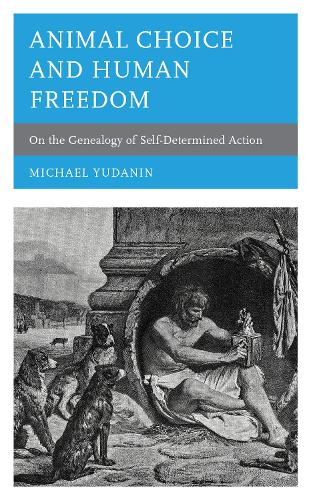
Animal Choice and Human Freedom: On the Genealogy of Self-determined Action
(Hardback)
Publishing Details
Animal Choice and Human Freedom: On the Genealogy of Self-determined Action
By (Author) Michael Yudanin
Bloomsbury Publishing PLC
Lexington Books
2nd September 2020
United States
Classifications
Professional and Scholarly
Non Fiction
Ethics and moral philosophy
Biology, life sciences
123.5
Physical Properties
Hardback
290
Width 162mm, Height 228mm, Spine 27mm
617g
Description
In Animal Choice and Human Freedom: On the Genealogy of Self-Determined Action, Michael Yudanin argues that describing freedom conceptually is impossible without explaining how it can exist in the world. Yudanin develops an account of freedoms instantiation in biological agents and provides several prerequisites that are necessary for its exercise. He demonstrates that freedom is linked to the form of life and distinguishes between choice in non-verbal animals and human freedom, where the latter is enabled by the development of language and thus possesses a distinct character. Following this descriptive account, Yudanin explores freedoms evolutionary history, explaining how it developed in the course of the evolution of species.
Reviews
Yudanin's book examines the philosophical concept of freedom and the unique difficulties of discussing it. Dismissing the concerns of Kant, who concluded that freedom is conceptually beyond human understanding, Yudanin (independent scholar) argues freedom is simply "the ability to do what [one] want[s]" (p. 13). Freedom is a feeling that runs in the background of everyday dealings with the world. Yudanin discusses various philosophical positions (compatibilism, libertarianism, determinism) but notes that none of them presents an argument about how free agents came to have freedom. He explores this problem. He defends a form of compatibilism through evolutionary roots of freedom in biological entities functioning separately from their environments; to survive, living beings must continually make choices to do something. Basing his discussion in Agamben's distinction between zoe and bios, Yudanin concludes that representing consciousness found in human beings and various mammals serves as the "birthplace of freedom" (p. 6), and he examines the ways animal self-determined choice and human freedom compare. This is a complex topic, and Yudanin's writing is clear and accessible. . . Summing Up: Recommended. Upper-division undergraduates through faculty.
-- "Choice Reviews"Author Bio
Michael Yudanin received his PhD from the University of Georgia.
